
How can Existential Therapy Help?
Loss is an inevitable part of the human condition. Whether through death, separation, or the myriad other ways in which life can strip us of what we hold dear, loss is a universal experience that touches every heart. And yet, despite its universality, the pain of loss is always profoundly personal. It is a unique kind of suffering that can shake the very foundations of our world, leaving us feeling lost, groundless, and alone.
In the midst of this existential crisis, it is natural to search for meaning. We may ask ourselves: Why did this happen? What is the point of going on? How can I make sense of a world that feels so senseless? These are the kinds of questions that existential therapy aims to grapple with.
What is Existential Therapy?
Existential therapy is a philosophical approach to psychotherapy that is concerned with the human condition in all its depth and complexity. Unlike some other therapeutic modalities that focus primarily on symptom reduction or behavioral change, existential therapy delves into the fundamental issues of existence – freedom, meaning, isolation, and death.
At its core, existential therapy is based on the idea that human beings are not just passive products of their environment or their past, but are actively engaged in shaping their own lives through the choices they make and the meanings they create. This is both a great freedom and a great responsibility.
Existential therapists believe that many of the problems that bring people to therapy – anxiety, depression, relationship issues, etc. – are ultimately rooted in deeper existential concerns. By confronting these ultimate concerns head-on, and by helping individuals to clarify and act on their own values and purpose, existential therapy aims to foster a more authentic, fulfilling way of being.
Key Concepts in Existential Therapy
To understand how existential therapy approaches the experience of loss, it’s helpful to grasp some of its key concepts:
Freedom and Responsibility
Existential philosophy emphasizes that humans are fundamentally free beings. We are not determined by our instincts, our past, or our circumstances, but are always capable of making choices and taking responsibility for our lives. This freedom can be daunting, as it means we must constantly face the anxiety of possibility and the weight of our decisions.
Meaning and Values
In the existential view, life has no inherent, pre-given meaning. It is up to each individual to create their own meaning and to define their own values. This meaning is not found, but made – it is the result of our actions, our commitments, and our willingness to embrace the inherent absurdity and mystery of existence.
Existential Anxiety and Authenticity
Because we are free, and because life is ultimately uncertain and finite, existential philosophy suggests that anxiety is an unavoidable part of the human condition. However, this anxiety need not be debilitating. In fact, it can be a spur to live more authentically – to face our fears, to take risks, and to create a life that truly reflects our deepest values.
Being-Toward-Death
Existential thinkers argue that a constant awareness of our own mortality – what Heidegger called “being-toward-death” – is essential for living fully. When we confront the reality of our finitude, we are jolted out of complacency and prompted to consider what really matters. The urgency of death can paradoxically awaken us to the preciousness of life.
Existential Perspectives on Loss and Grief
So how does existential therapy understand the experience of loss and the process of grieving? Here are some key insights:
Loss as an Existential Crisis
From an existential standpoint, significant losses can shatter the meanings and identities we have constructed for ourselves. The death of a loved one, the end of a relationship, the loss of a job or a dream – these events can challenge our assumptions about who we are and what our life is about. In this sense, loss precipitates a kind of existential crisis, a radical questioning of our being-in-the-world.
Grief as a Journey of Meaning-Making
Existential therapists see grieving not as a pathological condition to be cured, but as a natural, necessary process of meaning reconstruction in the wake of loss. When we grieve, we are not just passively experiencing a series of emotional stages, but are actively grappling with profound questions of identity, purpose, and value. Grief is a journey of making sense and making meaning in a world that has been irrevocably altered.
The Importance of Presence and Authenticity
In accompanying someone through grief, existential therapists emphasize the importance of presence and authenticity. Rather than trying to offer pat answers or quick fixes, the therapist aims to be a compassionate witness to the griever’s unique experience. This involves being willing to sit with the full intensity of their emotions, their questions, and their search for meaning, without judgment or agenda. It also involves being genuine in one’s own responses, acknowledging the limits of understanding, and resisting the temptation to offer false comfort.
Grief as an Opportunity for Growth
While in no way minimizing the pain of loss, existential therapy also recognizes that grief can be a catalyst for profound personal growth and transformation. By shattering our taken-for-granted realities, loss can open us up to new ways of seeing and being. It can challenge us to re-evaluate our priorities, to connect more deeply with others and ourselves, and to live more courageously and authentically in the face of life’s inherent fragility. In this sense, the journey of grief, while undoubtedly arduous, can also be a journey of self-discovery and renewed vitality.
Viktor Frankl and Logotherapy
One of the most influential figures in existential therapy is Viktor Frankl, the Austrian psychiatrist and Holocaust survivor who developed the approach known as logotherapy. Frankl’s experiences in Nazi concentration camps convinced him that the primary human drive is not pleasure, as Freud believed, but the search for meaning.
In his famous book “Man’s Search for Meaning,” Frankl argued that even in the most absurd, painful, and dehumanizing situations, life has potential meaning and that, therefore, even suffering is meaningful. He observed that those prisoners who were able to find meaning in their experience, whether through work, love, courage, or dignity, were the most likely to survive the horrors of the camps.
Frankl’s logotherapy, which he saw as complementary to rather than a replacement for traditional psychotherapy, is based on three core principles:
- Life has meaning under all circumstances, even the most miserable.
- Our main motivation for living is our will to find meaning in life.
- We have freedom to find meaning in what we do, and what we experience, or at least in the stance we take when faced with a situation of unchangeable suffering.
In the context of grief therapy, a logotherapeutic approach would focus on helping the bereaved individual to find and embrace a sense of meaning and purpose, even in the face of their loss. This might involve:
- Exploring the values and beliefs that give the individual’s life a sense of direction and significance.
- Identifying potential sources of meaning, such as relationships, work, creativity, service, personal growth, or spiritual connection.
- Encouraging a stance of self-transcendence, in which the individual looks beyond their own suffering to find ways to contribute to the world.
- Drawing on the individual’s innate capacity for resilience, choice, and responsibility.
The goal is not to eliminate the pain of grief, but to help the individual to bear it with a sense of meaning and purpose. As Frankl himself put it, “When we are no longer able to change a situation, we are challenged to change ourselves.”
Irvin Yalom and Existential Psychotherapy
Another key figure in the development of existential therapy is Irvin Yalom, the American psychiatrist and author who has written extensively on the theory and practice of existential psychotherapy.
Yalom identifies four “ultimate concerns” that he believes are at the root of most psychological problems: death, freedom, isolation, and meaninglessness. He argues that a confrontation with these concerns, while painful, is necessary for authentic, fulfilling living.
In his work with grieving individuals, Yalom emphasizes the importance of facing the reality of death and loss head-on, rather than trying to deny or avoid it. He encourages a process of “rippling,” in which the individual reflects on the ways in which their loved one’s life and death have impacted and will continue to impact the world.
Some key aspects of Yalom’s approach include:
- Helping the individual to accept the finality and inevitability of death, while also embracing the preciousness and possibilities of life.
- Exploring the individual’s sense of isolation and aloneness, and encouraging them to reach out for support and connection.
- Grappling with the responsibility and freedom inherent in creating a meaningful life, even in the absence of the loved one.
- Fostering a sense of self-awareness, authenticity, and engagement in the therapeutic relationship.
Yalom also stresses the importance of the therapist’s own willingness to engage with these ultimate concerns. Existential therapy is not just a set of techniques, but a way of being, in which the therapist is authentically present and open to the full depth and complexity of the human experience.
Rollo May and the Courage to Create
Rollo May, another prominent existential psychologist, brings a unique perspective to the journey of grief with his emphasis on creativity and the courage to embrace life’s possibilities.
In his book “The Courage to Create,” May argues that creativity is not just about artistic expression, but is a fundamental aspect of self-actualization and meaning-making. He sees creativity as the process of bringing something new into being, whether that is an idea, a work of art, a relationship, or a new way of being in the world.
For May, the grieving process is not just about coming to terms with what has been lost, but also about having the courage to create a new life in the aftermath of loss. This involves:
- Confronting the anxiety and uncertainty that come with stepping into the unknown.
- Tapping into one’s inner resources and potential for growth and transformation.
- Embracing the freedom and responsibility to shape one’s own existence.
- Finding ways to express and channel the intense emotions of grief into creative, life-affirming activities.
May also emphasizes the importance of the body and the senses in the healing process. He encourages individuals to stay grounded in their physical experience, to engage in activities that promote vitality and aliveness, and to find outlets for the physical energy of grief.
Ultimately, for May, the journey of grief is a journey of courage – the courage to face the pain, the courage to create meaning, and the courage to love again in the face of life’s transience.
Bibliography:
Frankl, V. E. (2006). Man’s Search for Meaning. Beacon Press.
May, R. (1994). The Courage to Create. W. W. Norton & Company.
Yalom, I. D. (1980). Existential Psychotherapy. Basic Books.
Yalom, I. D. (2008). Staring at the Sun: Overcoming the Terror of Death. Jossey-Bass.
Corey, G. (2013). Theory and Practice of Counseling and Psychotherapy (9th ed.). Brooks/Cole.
Cooper, M. (2003). Existential Therapies. SAGE Publications.
Greenberg, J., Koole, S. L., & Pyszczynski, T. (2004). Handbook of Experimental Existential Psychology. The Guilford Press.
Rogers, C. R. (1995). A Way of Being. Houghton Mifflin Harcourt.
Spinelli, E. (2005). The Interpreted World: An Introduction to Phenomenological Psychology (2nd ed.). SAGE Publications.
Van Deurzen, E., & Kenward, R. (2005). Dictionary of Existential Psychotherapy and Counselling. SAGE Publications.




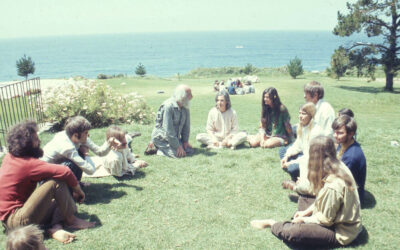


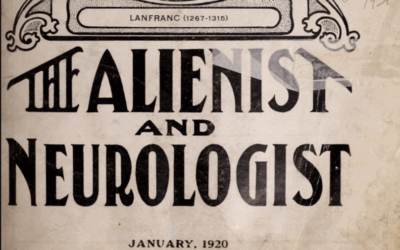
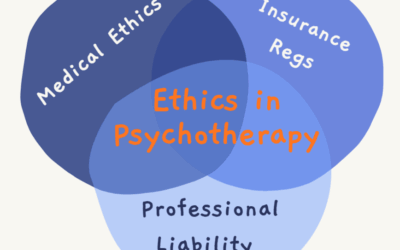




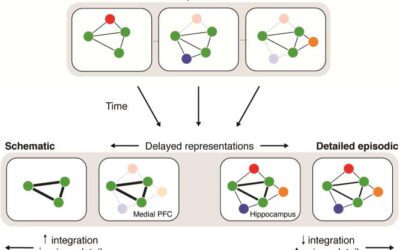








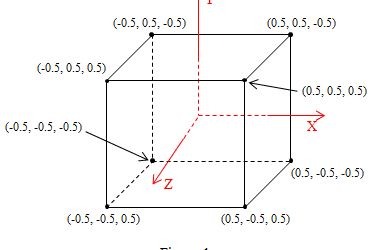


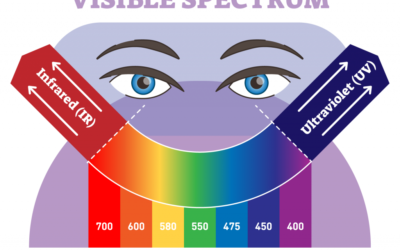
0 Comments